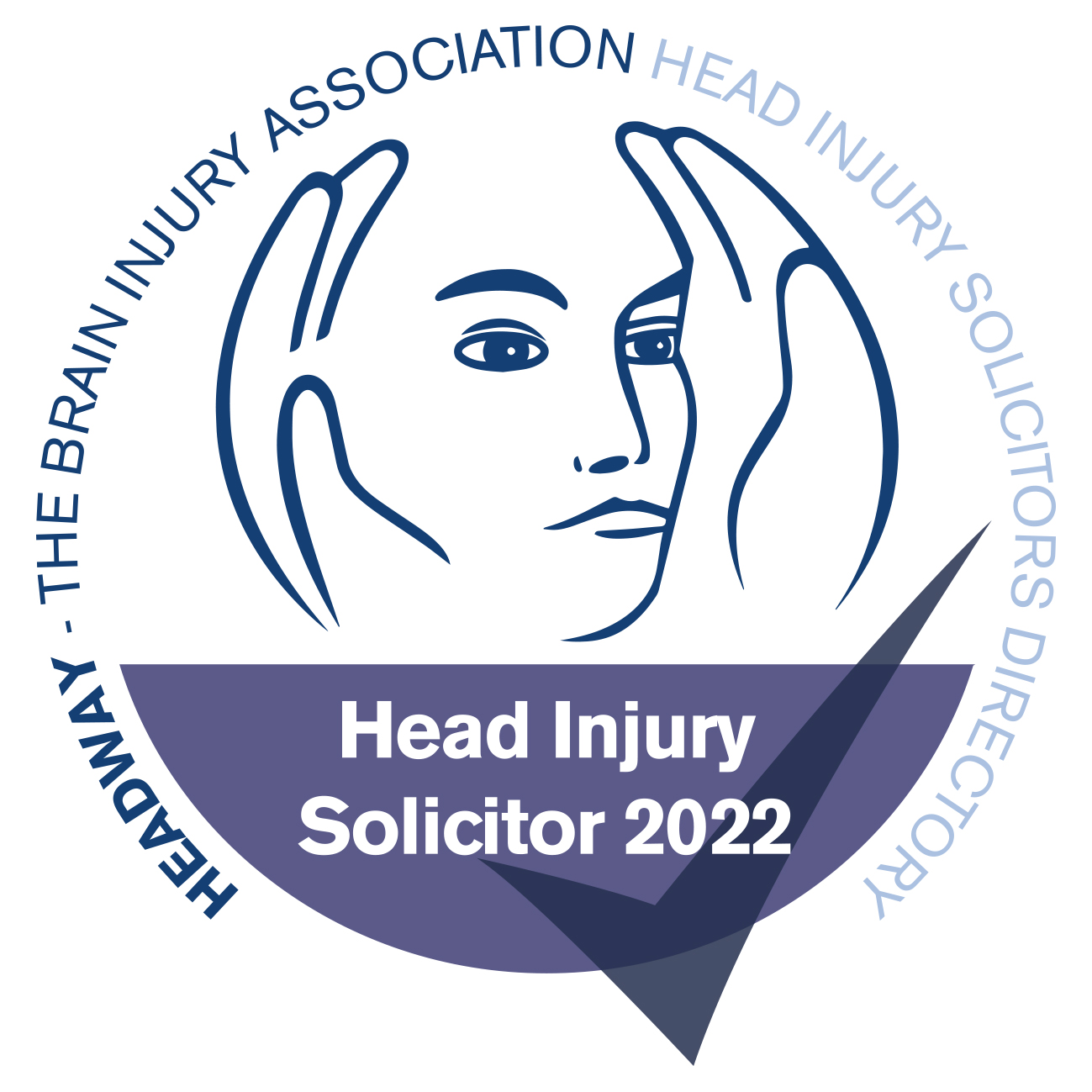Failure to diagnose illness claims
The team of specialist solicitors at Potter Rees Dolan in Manchester is here to help you get the legal support you need if a medical professional has failed to diagnose an illness or condition, leading to complications and suffering further down the line.
Failure to diagnose claims can involve anything from failing entirely to diagnose a condition such as cancer, to missing signs of a condition or an injury that could have been alleviated if caught earlier.
A claim may also be possible if a medical professional has failed to refer a patient to a specialist for investigation of their symptoms, which has then led to a delay in diagnosis. You can rely on our clinical negligence team to help you fight for the financial award to which you are entitled and to reduce the unnecessary suffering you and your family could well be experiencing.
We’ve helped many clients get the compensation they need to cope with the physical and emotional consequences of poor medical care, and we know the difference that a successful claim can make to your quality of life - it can pay for any care needed, cover potential losses of earnings, specialist equipment, and any adaptations that your home may need as a result of your condition.
Our highly regarded clinical negligence team is made up of Helen Dolan, Lesley Herbertson, Gill Edwards and Helen Budge, who all feature in the prestigious Legal 500 and Chambers guides. One of our guiding principles is to personalise our service for every single person we work with, putting our clients and their best interests first.
Speak to our caring and supportive team about a failure to diagnose claim on 0800 027 2557; alternatively, if you’d like one of our solicitors to call you back, please fill in the contact form on the side of the page and we will call you back at a time of your choosing.
What does failure to diagnose mean?
Cases of failure to diagnose are split into two categories:
- Undiagnosed - when you have visited your GP or attended hospital on several occasions, and doctors fail to diagnose your condition, do not refer you for the correct investigations or misinterpret test results
- Misdiagnosed - when a medical professional gives you the incorrect diagnosis, such as being told you have cancer when in fact you do not
What are the repercussions of failure to diagnose?
Failure to diagnose cases are some of the most difficult for our clients at Potter Rees Dolan to come to terms with. You have an expectation that medical professionals will perform their duties to the best of their abilities. When the correct diagnosis has been missed, it's our job to find out how and why it happened.
In some cases, failure to refer you for investigation or to diagnose a condition quickly can result in a condition getting worse, or perhaps even lead to death. It might be that the medical professional has disregarded what the patient has said, or has not appreciated the significance of a symptom, missing a diagnosis as a result.
Failure to diagnose can have broad and far-reaching consequences, including:
- Chronic illness or even death
- Fear, anxiety or stress-related illnesses
- Illness that change and impact on your day-to-day life
- Loss of confidence and trust in healthcare professionals
What happens next?
First, we will discuss your circumstances in detail and help you understand whether or not you have a case. If you do, we will assist you in gathering all of the necessary evidence to build a strong case, giving you the best chance of recovering the right amount of compensation.
Your medical records are our first port of call - we will obtain and go through them with you in depth.
We will then instruct independent experts to advise on whether or not you or your family member has received substandard treatment. Once we have positive expert evidence in support of your failure to diagnose claim, we will start court proceedings. The claim will be progressed as quickly as possible, while always exploring opportunities to adequately settle the case early on if we can.
Can I make a failure to diagnose claim?
You may be entitled to make a failure to diagnose claim if your case meets the following criteria:
- The failure to diagnose must be deemed unacceptable by medical professionals
- The failure to diagnose must be shown to have caused or contributed to injury and loss that would otherwise have been avoided
Failure to diagnose cases are notoriously complex, as it can be difficult to demonstrate that the patient is worse off as a result of the failure to diagnose. This will depend on the patient’s individual circumstances, evaluations made by medical professionals and our specialist legal team at Potter Rees Dolan.
How we can help
Potter Rees Dolan’s clinical negligence team has earned a reputation as one of the very best in the UK. Boasting a combined experience in serious injury law of over 60 years and comprehensive medical insight, the team has an unwavering dedication to helping families recover the compensation they need.
About Helen Dolan, head of the department, Chambers 2019 says: "Helen regularly handles complex claims, such as those related to psychiatric care. She has further expertise in spinal injury, surgical negligence and cerebral palsy claims, as well as breach of duty cases. One source states: 'Her attention to detail and knowledge of the case inside and out was exemplary.’”
The same publication said Lesley Herbertson “is very good on the complex details of the case and is able to translate this to clients".
Meanwhile, Gill Edwards is described as being "incredibly good with clients - they really warm to her - and very good on the medical details".
Chambers 2019 also praised our clinical negligence team as a whole, calling it a “well-regarded team with an impressive caseload of complex clinical negligence work” and citing sources that highlight the "really nice, bespoke, high-quality" service we offer.
Our clients regularly tell us that it is the empathy and care with which we act that sets us apart. We specialise in serious and catastrophic injuries, so we know how difficult it can be to live with severe disability. It is our aim, therefore, to make the claims process as stress-free for you and your family as we can.
Funding a failure to diagnose claim
Most clinical negligence cases are funded on the basis of a “no win, no fee” agreement, otherwise known as a Conditional Fee Agreement. We can investigate your potential failure to diagnose claim and you will not have to pay us a penny if your case is not successful. We will explain how a Conditional Fee Agreement works at our very first meeting.
You may already have a legal expense insurance policy. In the first instance, we’ll always start by investigating whether you can use the same policy for your case, before considering whether a Conditional Fee Agreement may be more appropriate.
Contact us today
Our understanding and caring team is waiting to hear from you on 0800 027 2557. We’re ready to listen and to help you get the support you need.
If you’d like one of our solicitors to give you a call back, fill out form on the side of the page or visit our contact page. If there is someone specific at the firm you would like to speak to, visit their profile on our people page.
FAQs
Which conditions are commonly misdiagnosed/ which conditions cause the greatest harm when misdiagnosed?
Our team deals with cases relating to certain conditions on a regular basis, including but not limited to:
- Subarachnoid haemorrhage - if a bleed to the brain after a head injury is not diagnosed and treated promptly. it can lead to extensive brain damage
- Aneurysm - if symptoms such as ‘thunderclap’ headaches are not investigated properly, it is possible that a brain aneurysm can be missed and go untreated, leading to a significant brain injury
- Cauda equina injury - loss of sensation in the body and limbs, resulting from a failure to investigate and protect the spinal cord from further damage
- Cancer - failure to perform or correctly interpret a mammogram, biopsy, scan and/or blood tests can all lead to the disease reaching a more advanced stage
- Heart conditions - failure to diagnose conditions such as hypertrophic cardiomyopathy (HCM) and provide an implantable cardioverter defibrillator (ICD), and/or failure to diagnose Long QT syndrome, can cause premature death or brain damage
- Meningitis - failure to perform a proper and timely physical and neurological examination, and/or failure to perform a lumbar puncture, can result in brain injuries, amputations, or in some cases death
- Pneumonia - failure to diagnose pneumonia can lead to potentially fatal lung injuries
- Sepsis - failure to diagnose signs of sepsis can lead to septic shock, intestinal failure and possibly death
- Compartment syndrome - failure to diagnose the signs of reduced circulation can lead to amputation
Useful Information
Compartment Syndrome
This is a painful, and potentially serious condition, where an enclosed body space (such as a bundle of muscles or tissue) swells and so pressure increases.
Pressure builds within the compartment which affects the function of the muscle and tissue.
There is then a lack of oxygenated blood to the area which can cause the tissue to die. If left untreated, then it could result in a loss of a limb.
Read about our client who was wrongly diagnosed with Deep Vein Thrombosis when in fact she had compartment syndrome. She was diagnosed too
Hypertension
Another name for high blood pressure, hypertension means that the blood pressure is continually higher than normal and rarely shows any symptoms.
As hypertension has no obvious symptoms, the only way to check is to have your blood pressure measured. However, in some rare cases of very high blood pressure, the individual mat experience a persistent headache, blurred vision and nosebleeds.
In most cases, the cause of hypertension is
A small percentage of hypertension cases are as a result of underlying conditions such as; kidney disease, diabetes, hormonal conditions and the oral contraceptive pill.
If untreated, hypertension could cause a stroke or heart attack and kidney disease.
Cauda Equina Syndrome (CES)
This is a particularly serious type of nerve root problem in the back which is very rare. It occurs when there is pressure on the nerves at the very bottom of the spinal cord, preventing the nerves from working properly. For more information on (CES) click here.













